When hiring a bail bondsman, you may be asked to provide bond collateral. Generally speaking collateral are securities (separate and in addition to the fee or premium) pledged on behalf of the borrower in a “good faith” gesture to protect the interests of the lender and further insure and/or guarantee a specific obligation is met.
In context of the bail industry collateral is used to hedge the bail bondsmen’s exposure on bonds that don’t fit the company’s standard risk profile. For example, collateral may be requested for bonds on defendants who live out of state, or have excessive “Failure To Appears”. Collateral is often requested on large bonds, on applications with under-qualified cosigners, and on bonds for defendants that will likely be sentenced to prison if convicted. What’s most important to remember about bond collateral is that it’s FULLY refundable unless the bail bond contract is breached resulting in the bail bond company having to pay the full penal sum of the bond. In the North Carolina General Statutes, there are several regulations in Chapter 58 that govern the use of collateral by bail bondsmen. We will discuss a few.
Collateral can take many forms. Money, checks, and personal property are all valid forms of collateral. Whatever the collateral, once he or she accepts it, the bondsman is required to keep it safe and to return it in the condition in which it was received. North Carolina law requires that upon redemption the collateral be returned to the person who pledged it originally.
Collateral is carefully stored and documented. When you give collateral, you will receive a receipt with a detailed description of the collateral. Meanwhile, the bondsman must hold the collateral in trust. Property, must be stored safely and returned in the same condition as when it was provided. Real property secured by a Deed of Trust must be released through a filing process at the Register of Deeds in the county where the address is located.
While bondsmen may request collateral, its value must be reasonable compared to the amount of the bond. A bondsman shall not “over-collateralize”. In other words, the collateral received may be equal to, but must not exceed 100% of the value of the bond. The appropriate value of collateral must be determined on a case-by-case basis.
Finally, collateral must be returned in a timely fashion. Once the bondsman is no longer liable for the bond, he or she must return collateral within 72 hours of the final disposition. Final disposition is technically 10 days after a judgment is entered in District or Superior Court where no appeal is taken. Failure to return collateral properly can result in adverse legal actions taken against the bondsperson.
While bond collateral may seem confusing at first, it is simply a caveat intended to provide an additional layer of security for the bail agency until the defendant’s court obligations are met. In North Carolina the use of collateral is closely regulated to avoid abuse. For a better understanding of collateral give us a call here at Case Closed Bail Bonds. As always, we can help you arrange bail, or simply answer questions. For specific questions about collateral you or a loved one have pledged, or if you have difficulty redeeming your collateral after contacting your bondsman, direct your inquiries or complaints to the North Carolina Department of Insurance.


